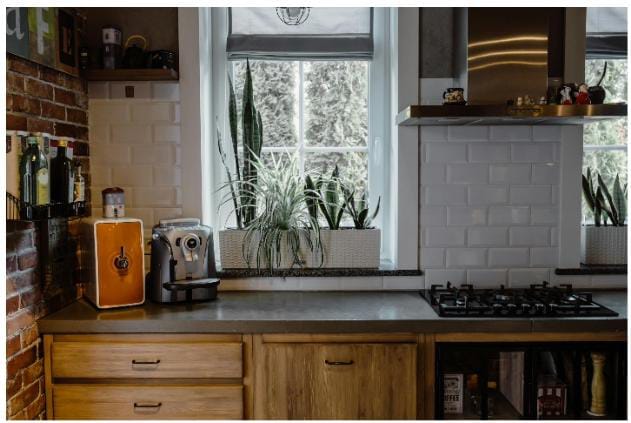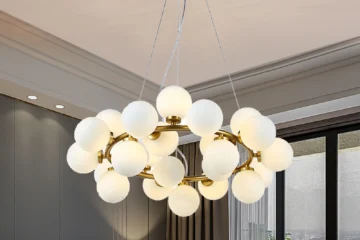Plano, a bustling city in Texas, has been progressively adopting sustainable practices, making it a great place for homeowners looking to embrace greener lifestyles. Sustainable living isn’t about drastic, complicated changes; rather, it involves small, thoughtful modifications that can make a big impact over time. Simple swaps and adjustments can significantly reduce your environmental footprint and even lower household costs.
This article will walk you through some easy, actionable changes you can implement to create a more sustainable lifestyle at home.
1. Switch to Energy-Efficient Lighting
Lighting is one of the simplest areas to address when making your home more sustainable. Traditional incandescent bulbs use a significant amount of energy and often need replacing, which not only consumes power but also adds to waste. By swapping them for energy-efficient alternatives like LED or CFL bulbs, you can cut down on your energy consumption dramatically.
LED bulbs use up to 75% less energy and last 25 times longer than traditional incandescent lights. With such benefits, not only do you reduce your electricity usage, but you also spend less on replacements. The initial cost of these bulbs may be higher, but they quickly pay off with long-term savings on your utility bills. Plus, they produce less heat, making your home more comfortable, especially in warmer climates like Plano.
2. Upgrade Your Bathroom for Water Efficiency
Water is one of the most important resources we use daily, and even small changes in the bathroom can lead to significant conservation efforts. When considering bathroom remodels in Plano, focus on installing fixtures that reduce water waste. Low-flow showerheads, faucets, and toilets are easy upgrades that make a noticeable difference in your water usage without sacrificing performance.
For example, low-flow toilets can use as less as 1.28 gallons per flush, as opposed to older models that use up to 3.5 gallons. Over time, this can save thousands of gallons of water annually. Similarly, low-flow showerheads help cut down on water waste while still maintaining good water pressure. These simple improvements are not only environmentally friendly but can also lead to lower utility bills, offering a double benefit for homeowners in Plano.
3. Adopt a Recycling System
Recycling might seem like an obvious choice, but many households don’t implement it effectively. Setting up a well-organized recycling system at home can make it easier for everyone in the family to participate in eco-friendly habits. The key to successful recycling is to ensure that you separate items correctly and understand what can and cannot be recycled in your area.
Start by designating clearly labeled bins for paper, plastic, glass, and metals. Make it convenient by placing them in high-traffic areas like the kitchen. Educate your family members on the importance of recycling and guide them on what to look for, such as checking labels and rinsing containers before placing them in the bin. By making recycling a regular household habit, you reduce the amount of waste sent to landfills, helping to conserve natural resources and reduce pollution.
4. Choose Sustainable Cleaning Products
The cleaning products we use around the house can have a big impact on the environment. Many commercial cleaners contain harsh chemicals that not only harm the planet but can also negatively affect your health. Switching to eco-friendly cleaning products is a simple way to reduce your exposure to harmful toxins while keeping your home clean and fresh.
Look for biodegradable, plant-based cleaning solutions that are free from harmful chemicals like ammonia, bleach, and phthalates. Many sustainable cleaning products are just as effective as their chemical-laden counterparts but come with the added benefit of being safer for both the environment and your family. You can even make your own cleaning solutions using household items like vinegar, baking soda, and essential oils.
5. Reduce Single-Use Plastics
Single-use plastics are one of the biggest contributors to global pollution. From plastic bags to disposable water bottles, these items often end up in landfills or oceans, where they take hundreds of years to decompose. Fortunately, reducing your reliance on single-use plastics at home is a relatively easy habit to adopt.
Start by swapping plastic bags for reusable grocery bags, which are sturdier and can be used multiple times. Invest in a good set of reusable water bottles, food storage containers, and even silicone food wraps instead of plastic wraps. These small changes may seem minor, but collectively, they can significantly reduce the amount of plastic waste your household generates. Additionally, reusable alternatives often last longer and save you money over time.
6. Start a Compost Bin
Composting is an excellent way to lower waste while making soil that is nutrient-rich for your garden. Food scraps, yard clippings, and even some paper products can be composted instead of sent to a landfill. Starting a compost bin at home is easy and requires minimal setup. All you need is a designated space for your compost, whether that’s in a small bin in the kitchen or a larger outdoor compost pile.
Composting not only reduces the amount of waste you throw away but also enriches the soil in your garden. By composting organic materials, you’re returning valuable nutrients to the earth, reducing the need for chemical fertilizers. It’s a small change that can make a big impact, especially for those looking to practice sustainability in everyday life.
7. Switch to Reusable Grocery Bags
Plastic grocery bags contribute to a significant amount of waste worldwide, and many municipalities have started banning or charging for their use. One of the simplest ways to cut down on plastic waste is by switching to reusable grocery bags. These bags are not only more durable than their plastic counterparts, but they can also carry more items, making them more convenient for shopping trips.
Reusable bags are available in various materials like cloth, jute, or even recycled plastic, and they can last for years if taken care of properly. By keeping a few reusable bags in your car or by the door, you’ll be more likely to remember to take them with you on your grocery runs. This small habit can significantly reduce your household’s reliance on single-use plastics and help protect the environment.
In conclusion, adopting a more sustainable lifestyle doesn’t have to be complicated. Small changes can make a significant impact on your environmental footprint. Whether you’re making upgrades to your bathroom or starting a compost bin, every step you take toward sustainability is a step toward a healthier, more eco-friendly home.
Stay in touch to get more news & updates on Gossips!




